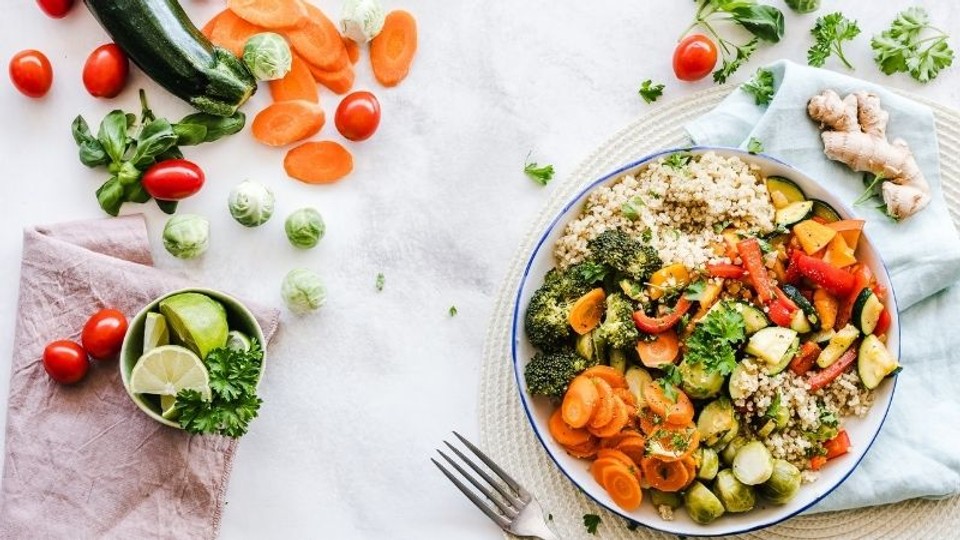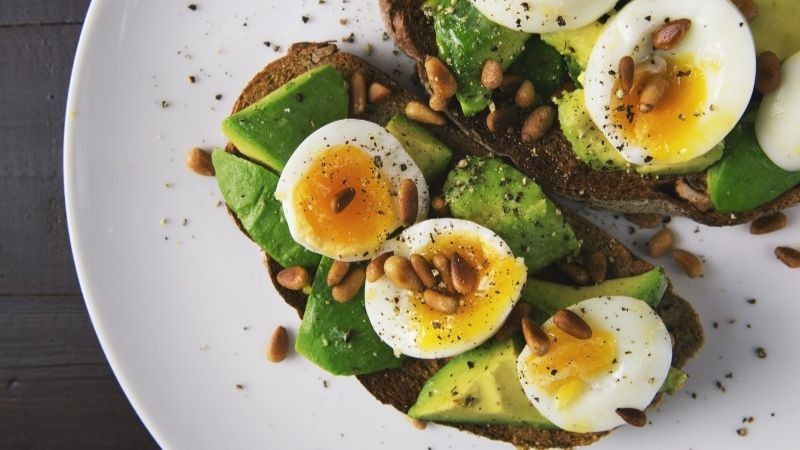
According to recent reports and advice from nutritionists, the below list of health tips are some of the most important and helpful habits to adopt after the age of 25. For those of us who are terrible at sticking to routines, these tips are super easy to remember and include in your new and improved daily routine, without too much hassle!
Eat protein-rich brekkies

We’ve heard it a million times before ‘breakfast is one of the most important meals of the day’, but is there any truth to this and does it apply to everyone? Research reflects that people in their 20’s are far more likely to skip brekkie, but apparently this could have detrimental effect on our overall physical and mental well-being. Breakfast literally means ‘breaking the fast’ because it’s the first meal we consume after we wake up, providing us with the energy we need to face the day, but skipping this meal could result in decreased mental response times, an unwillingness to exercise and of course can make you extremely ‘hangry’.
For those who do eat brekkie, it’s all too easy to throw together a bowl of sugary cereal before running off to work, but though efficient, this isn’t the best thing for us and will likely make us feel hungry again shortly after consumption. Instead, try filling your belly with healthy proteins like full-fat yogurt or eggs.
Avoid sugary drinks

After a long day at the beach in the scorching sun, nothing hits better than a cold, crisp can of soft drink or a sugary juice! Same goes for the morning after a long night of drinking with mates, but unfortunately, these are the sorts of temptations we need to avoid. Dropping this bad habit is the key to better health, avoiding excess weight gain and clearer skin, so try switching up the juice and soft drink for a tall glass of water and if you’re craving a little flavour, why not chuck in a cheeky slice of lemon?
Eat more veggies and eat them first

As meat eaters, we could always do with introducing more vegetables into our diet. Most of us learnt as kids that vegetables contain all sorts of healthy nutrients including potassium, vitamin A, vitamin C and fibre, all of which have their own benefits on the body.
The only issue is, we don’t always prioritise our vegetables when we’re cooking or even when they’re on our plate. According to Australian dietary recommendations, women between the ages of 19 and 50 years-old should be eating five servings of vegetables a day, which translates to roughly 375 grams per day. To ensure that we aren’t just cooking the veggies but actually eating the full serving, try eating the vegetables before approaching anything else on your plate. Recent studies show that when competing with other delicious food on our plates, veggies are likely to be deprioritised and eaten last or not at all, however, when eaten on their own, we are more likely to finish the entire serving.
Don’t be afraid of fats

Contrary to what you might have heard, it’s important you remember to include fats in your diet. I’m not talking about the fat you’d find in a piece of KFC chicken, but rather unsaturated fats. The two subcategories of unsaturated fats include monosaturated fats and polyunsaturated fats. These particular types of fat help to decrease the likelihood of heart disease and will lower cholesterol levels, as long as they are consumed in place of saturated fats, not as well as.
Polyunsaturated fats include omega-3 fats (found in fish) and omega-6 fats (found in soybean oil and nuts). Then there’s monosaturated fats which you can be found in avocados, canola and olive oil and buts such as almonds and cashews. These things are pretty easy to include in your diet as long as they are being consumed in small amounts, so it wouldn’t hurt to get into the habit of checking the labels on products before you buy them to ensure what you are consuming is higher in poly and mono fats and lower in trans and saturated fats.
Get to bed earlier

While you’re relaxing on the couch watching your favourite Netflix show, it’s very easy to lose track of time, before you know it, it’s 11PM and by the time you fall asleep, you’ve only got about five to six hours of good sleep ahead of you. A serious lack of sleep doesn’t just affect our energy levels the following day, it can also have a detrimental affect on our long-term health increasing the risk of heart disease, high blood pressure and obesity.
When our bodies don’t get enough sleep, we stop producing a special hormone which helps to supress appetite. Naturally, this can result in unwanted weight gain which we all know, is harder to lose than it is to gain. To avoid this, we should really be trying to get between seven and eight hours of sleep per night.
Obviously, for some of us this isn’t possible, whether that be because we work late nights, have young kids or are just terrible sleepers, but we need to prioritise sleep as best we can. Our seven to eight hours doesn’t need to be back to back, so if the mood arises, try to nab yourself a quick 30-minute nap.
If you do struggle to get to sleep at night, you should be getting into the habit of heading to bed half an hour earlier than usual and winding down with a podcast or book. Most importantly though, try not to look at your phone! There are many reasons for this, one being that our phones stimulate our brains which means our minds are more active than they should be before we fall asleep. Secondly, the blue light produced by our phones can supress melatonin (the sleep chemical) and thirdly, arousing emotions before you fall asleep can delay REM sleep.
These five habits aren’t too hard to adopt and if you’re in your 20’s, now is the perfect time to start a new health routine to ensure these healthy habits are engrained in your mind for the next few decades and to pass on to our future generations.



